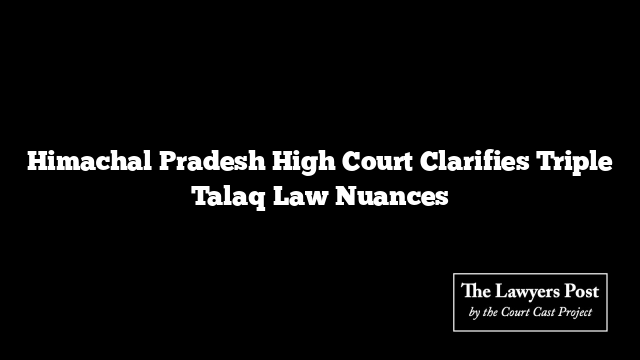In a pivotal decision, the Himachal Pradesh High Court declared that the Muslim Women (Protection of Rights on Marriage) Act, 2019, only criminalizes forms of talaq that are instantaneous and irrevocable. Justice Rakesh Kainthla highlighted the distinction between different types of talaq under Muslim law, pointing out that only Talaq-ul-Biddat fits the criteria for legal prohibition.
The court was addressing a petition aimed at nullifying an FIR lodged against a Muslim man under Section 4 of the Act. The petitioner’s case revolved around allegations of dowry harassment and a written divorce issued on April 25, 2022, which the wife claimed breached the 2019 Act. The husband countered, asserting that the wife had abandoned the matrimonial home and was unresponsive, prompting his issuance of a Talaq-e-Hasan, a form of talaq that allows for revocation after multiple notices over time.
The court noted that the FIR did not indicate an irreversible talaq nor a spontaneous divorce, falling short of the Talaq-e Biddat definition under the Act. However, the wife’s testimony alleged a direct divorce in January 2022 via triple talaq, raising questions to be addressed in the trial. Despite the husband’s denial, the court deemed it premature to evaluate the investigation’s accuracy, with the chargesheet already filed.
Consequently, the High Court refrained from quashing the FIR, leaving the resolution to the judicial process. The legal teams comprised Senior Advocate MA Khan and advocates Hem Kanta Kaushal and Azmat Hayat Khan for the petitioner, with Deputy Advocate General Ayushi Negi representing the State, and advocates Imran Khan and Ketan Singh for the informant.





